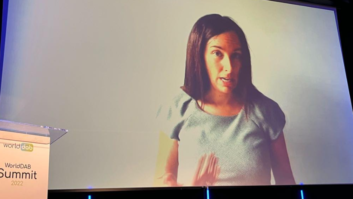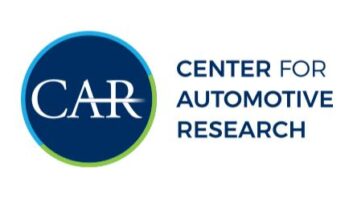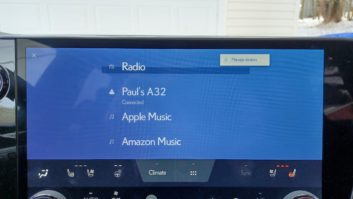LONDON � Figures released recently show that DAB adoption in the car is growing in key markets across Europe � with over 1.7 million new cars sold with DAB in the first half of 2016 (compared to 2.7 million for the whole of 2015). Across eight countries surveyed, 31% of new cars now come with DAB as standard equipment � with all eight markets showing an increase in adoption rates compared to 2015.�
Leading the way are the UK, Norway and Switzerland � where the vast majority of new cars now come with DAB as standard:

- In September, 86% of new cars in the UK came with DAB as standard (up from 35% at the beginning of 2013)
- In Norway, which will start to switch off FM transmissions in January 2017, at least 78% of new cars had DAB as standard in the first half of 2016 � this figure rises to over 90% when installation by dealers is included
- In Switzerland, where digital switchover is planned for 2020-2024, 65% of new cars now come with DAB+ as standard
The adoption of in-car DAB is picking up pace in other markets � with JATO reporting the fastest growth in the Netherlands and Denmark:
- In the Netherlands, 23% of new cars had DAB as standard in the first half of 2016 � up from 16% for 2015
- In Denmark, following a relaxation in tax rules which treated digital radio as a “luxury good”, the proportion of cars fitted with DAB has more than doubled to 11%, up from 5% in 2015
�In Germany, Italy and France, DAB is widely available as either a standard or an option fit:
- In Germany, DAB radio is available in 80% of new cars � primarily as an option�
- In Italy, the figure is 54%
- In France, it is 33%
Across these eight markets, the top five automotive brands for DAB, ranked by volumes sold, were Ford, Volkswagen, Renault, Opel/Vauxhall and BMW.
Commissioned by WorldDAB and carried out by JATO Dynamics, the research covers new cars sold in Denmark, France, Germany, Italy, The Netherlands, Norway and Switzerland and focuses on the number of cars sold with DAB as standard and the number of cars by brand offering DAB as an option. The latest UK research comes from the SMMT and Digital Radio UK.












